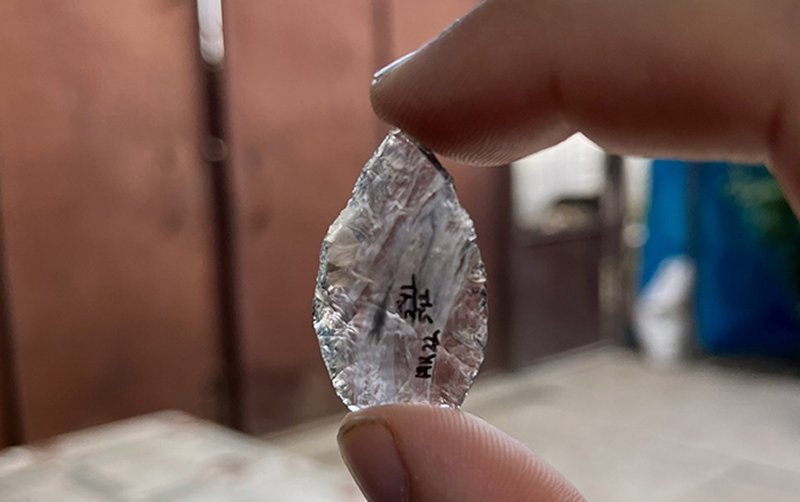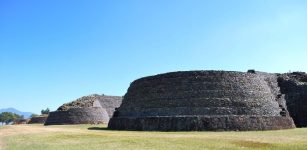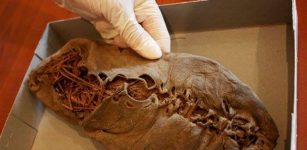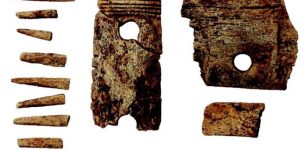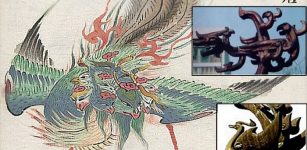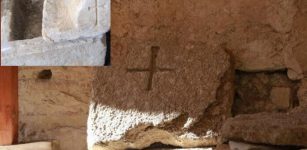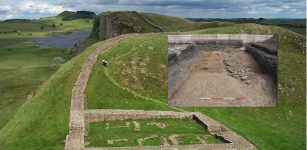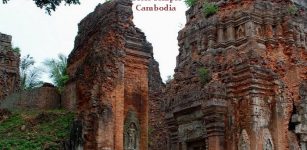Obsidian Flake From 45,000-Year-Old Tool Unearthed In Armenia
Conny Waters - AncientPages.com - A tiny, prehistoric obsidian flake originating from a 45,000-year-old tool was discovered in Armenia and published by Ellery Frahm, an archaeological scientist in the Department of Anthropology at Yale University, where he has been the Director of the Yale Initiative for the Study of Ancient Pyrotechnology since 2017.
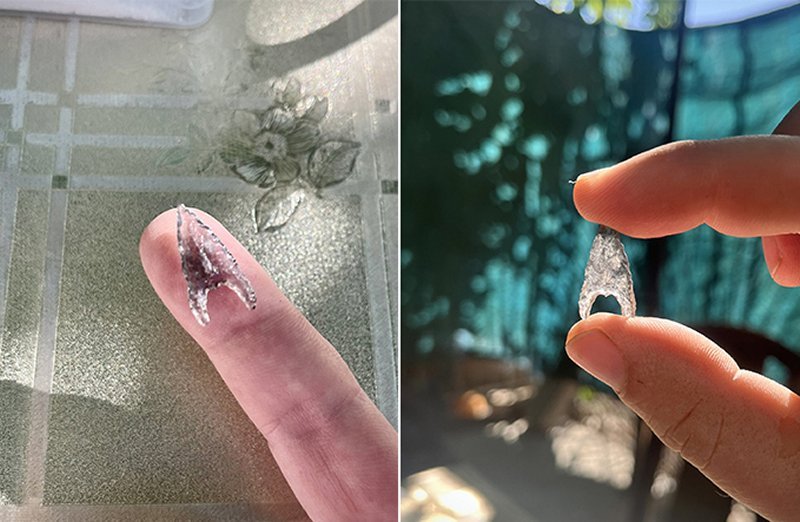 The artifact was discovered in Ararat1, a new Middle Palaeolithic cave in Ararat Depression, Armenia. Image credit: Ellery Frahm
The artifact was discovered in Ararat1, a new Middle Palaeolithic cave in Ararat Depression, Armenia. Image credit: Ellery Frahm
He has conducted and published research on four continents – Europe, Asia, Africa, and North America – spanning nearly half a million years of human history.
He teaches and conducts research both in the field and in the laboratory.
"It might not be the prettiest artifact from Ararat 1 Cave, but my chemical tests in our field lab established that this tiny obsidian flake was removed in order to resharpen a stone tool that, about 45,000 years ago, had been carried more than 200 km," Frahm said on Twitter.
Frahm’s team earlier found another minuscule obsidian projectile, most likely dated to the Chalcolithic period, on the first day of their excavations at the cave. The obsidian comes from Geghasar volcano — 40 km away linearly, but farther on foot, wrote PanARMENIAN Network.
The obsidian comes from Geghasar volcano — 40 km away linearly, but farther on foot,
In “The Archaeology of the Caucasus: From Earliest Settlements to the Iron Age” by Antonio Sagona we read that “the Spitaksar and Geghasar volcanoes, are among the highest peaks in Armenia.
"Obsidian is found on their slopes within a band between 3,200 and 3,00 m in altitude, a steppe environment with sevre winters, which allows access only between early June and mid-October. Visually, the obsidian from these two sources varies greatly. The Geghasar variety ranges in colour from transparent through red and brown to grey and black…”
 Ararat 1 Cave - a site of archaeological excavations conducted by Ellery Frahm and his team in Armenia. Image credit: Ellery Frahm.
Ararat 1 Cave - a site of archaeological excavations conducted by Ellery Frahm and his team in Armenia. Image credit: Ellery Frahm.
On Tuesday, July 12, the scientist shared the image of what he described as "the prettiest artifact so far from Ararat 1 Cave.
"It’s a Chalcolithic (post-Paleolithic and post-Neolithic) obsidian leaf-shaped point with one end broken off — it would’ve originally been more symmetrical before it broke long ago," Frahm wrote.
Written by Conny Waters - AncientPages.com Staff Writer

